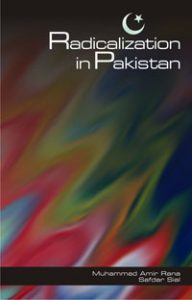 Pakistan’s religious organizations and scholars have a lot to learn from the non-political and public-oriented approach of the Indonesia Islamic organizations to educate people according to peaceful and dynamic principles of Islam. Like Indonesians, Pakistani religious scholars can respond effectively to challenges of extremism and intolerance through the reforms in religious education system particularly by updating and diversifying the curriculum, resorting to public education and awareness for peace and harmony, and providing both religious and modern/scientific education to students. These were some of the points of consensus reached among the participants of a joint seminar of leading Islamic scholars from Pakistan and Indonesia held on June 25 in Jakarta. The seminar, titled “Challenges facing Indonesia and Pakistan in religious, educational and intellectual perspectives: prospects for experience sharing and bilateral engagement” brought together a delegation of 12 Pakistani religious scholars visiting Indonesia and 15 Indonesian Islamic scholars at the University Islam Negeri (UIN) Syarif Hidayatullah, in Jakarta. Organized jointly by the Pak Institute for Peace Studies (PIPS) and the UIN Syarif Hidayatullah, the dialogue was aimed at exchange of views and experience between Pakistani and Indonesian scholars on the implementation of Islamic education, pluralism, and state’s policies toward religions. It was a part of a program led by the PIPS that undertakes to engage religious scholars and madrassas in Pakistan to promote peace and religious harmony.
Pakistan’s religious organizations and scholars have a lot to learn from the non-political and public-oriented approach of the Indonesia Islamic organizations to educate people according to peaceful and dynamic principles of Islam. Like Indonesians, Pakistani religious scholars can respond effectively to challenges of extremism and intolerance through the reforms in religious education system particularly by updating and diversifying the curriculum, resorting to public education and awareness for peace and harmony, and providing both religious and modern/scientific education to students. These were some of the points of consensus reached among the participants of a joint seminar of leading Islamic scholars from Pakistan and Indonesia held on June 25 in Jakarta. The seminar, titled “Challenges facing Indonesia and Pakistan in religious, educational and intellectual perspectives: prospects for experience sharing and bilateral engagement” brought together a delegation of 12 Pakistani religious scholars visiting Indonesia and 15 Indonesian Islamic scholars at the University Islam Negeri (UIN) Syarif Hidayatullah, in Jakarta. Organized jointly by the Pak Institute for Peace Studies (PIPS) and the UIN Syarif Hidayatullah, the dialogue was aimed at exchange of views and experience between Pakistani and Indonesian scholars on the implementation of Islamic education, pluralism, and state’s policies toward religions. It was a part of a program led by the PIPS that undertakes to engage religious scholars and madrassas in Pakistan to promote peace and religious harmony.
Besides participating in the seminar, the delegation of Pakistani religious scholars also visited the offices of different Islamic organizations and institutions of Islamic educations including the largest Islamic organization of Indonesia Nahdatul Ulema–a traditionalist Sunni Islamic group in Indonesia–and the second largest Islamic organization in Indonesia Muhammadiyah–a reformist movement that advocates Ijtihad and opposes Taqlid. The delegation also visited the Islamic boarding school “Dar al-Nijah”, Al-Maarif Institute, and Al-Wahid Institute. These institutes are working against extremism and violence and promote tolerance and harmony in the society.

The Pakistani scholars were of the view that the idea of establishing Islamic institutes in Pakistan on the pattern of Indonesian Islamic institutes such as Muhammadiyah, Maarif and Wahid should be promoted and supported.
The following Islamic scholars were part of the Pakistani delegation visiting Indonesia:
- Dr. Muhammad Khalid Masud, Director General Islamic Research Institute, International Islamic University, Islamabad
- Maulana Noorul Haq Qadri, Member of National Assembly, former federal minister for Zakat and Ushr
- Maulana Attaullah Shahab, Member Gilgit-Baltistan Council, advisor to Prime Minister of Pakistan
- Dr. Raghib Naeemi, Principal Jamia Naeemia, Lahore, Vice president Tanzeem ul Madaaris, Pakistan
- Maulana Muhammad Hanif Jallandhari, Principal Jamia Khair ul Madaaris, Multan, administrator (Nazim-e-Aala) Wafaqul Madaaris Al-Arabia, Pakistan
- Dr. Syed Muhammad Najafi, Principal Jamia Madina tul Elm, Islamabad, Deputy Director Taqreeb Mazahib-e-Islami Pakistan
- Maulana Abdal Haq Hashmi, Member of Central Executive committee of Jamaat-e-Islami, Pakistan from Balochistan, advisor to Federal Shariat Court
- Maulana Ammar Khan Nasir, Deputy Director Al-Sharia Academy Gujranwala, Editor monthly Al-Sharia
- Maulana Yasin Zafar, Principal Jamia Salafia Faisalabad, administrator (Nazim-e-Aala) Wafaqul Madaaris Al-Salafia, Pakistan
- Mufti Muhammad Zahid, Vice Principal Jamia Imdadia Faisalabad
- Mujtaba Rathore, Researcher, Pak Institute for Peace Studies (PIPS)
The following Islamic scholars from Indonesian participated in the seminar
- Prof. Komaruddin Hidayat, Chancellor of State Islamic University Jakarta
- Prof. Azyumardi Azra, Dean of Postgraduate Studies of State Islamic University, former Deputy of Indonesian Vice President
- Prof. Atho Mudzhar, senior lecturer of Syariah Faculty, former Head of Research and Development of Ministry of Religious Affairs
- Dr. Bahrul Hayat, Secretary General of Ministry of Religious Affairs
- Dr. Jamhari Makruf, vice chancellor of State Islamic University, advisor of PPIM
- Dr. Hari Zamharir, a young intellectual of Nahdlatul Ulama
- Prof. Dr. Nur Ahmad Fadhil Lubis, Chancellor of State Islamic Institute North Sumatera
- Ambassador Abdurrahman M. Fachir, Director General of Information and Public Diplomacy of Ministry of Foreign Affairs
- KH. Masdar F. Masudi, Deputy Chairman Nahdatul Ulema, the largest Muslim Organization in Indonesia
- Dr. Ali Munhanif, Executive Director Center for the Study of Islam and Society
- Dr Fuad Jabali, Researcher at Center for the Study of Islam and Society
- Dr. Irfan Abubakar, Director of Center for the Study of Religion and Culture
- Syafaatun Almirzanah, leading scholar on religion and interfaith studies
- Dr. Din Wahid, Researcher at Center for the Study of Islam and Society

